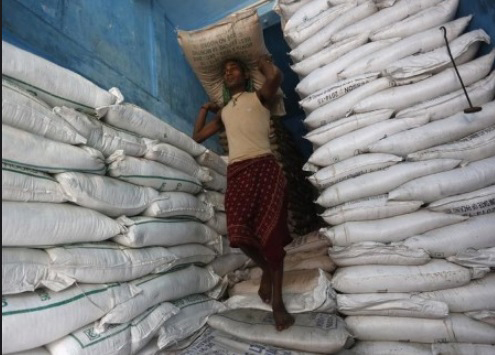President Ferdinand Marcos Jr. yesterday concluded a five-day working visit to Japan bringing home business deals while leaving Japanese investors he had enticed to invest with a promise of a strong macro-economy, liberal business policy and massive infrastructure development agenda.
Trade Secretary Alfredo Pascual said in an interview on Saturday 35 agreements were signed during the President’s visit although he did not say how many of these projects were “ready to go.” The visit has drawn an unprecedented number of business delegates from Japan and the Philippines, with 240 Philippine companies and 1,300 Japanese firms, composed of 3,472 businessmen, who registered for the meetings held in Tokyo.
In his speech at the first Philippine Business Opportunities Forum in Tokyo on Friday, Marcos said the country has been “remarkable” in its recovery from the economic slump brought by the global pandemic, citing its gross domestic product growth from 5.7 percent in 2021 to 7.6 percent last year.
“This growth which exceeded expectations and our targets was broad-based, reflecting high government spending and robust domestic demand driven by household consumption and private investments,” the chief executive said.
The President also noted inflation in the country has remained “manageable,” citing the December 15 forecast of the central bank that 4.5 percent inflation rate this year will further go down to 2.8 percent next year.
“Aided by industrialization and job-creation strategy, we expect the Philippine economy to graduate from lower-middle-income to upper-middle-income status by 2024, if not sooner.
This will keep us on track in achieving high-income status by 2040,” the President said.
“Against this backdrop, we envision poverty incidence in the Philippines to be slashed by half or from 18.1 percent in 2021 to 9 percent by 2028,” Marcos said.
He also pointed out that last month, he signed the Philippine Development Plan (PDP) 2023-2028, the country’s the medium-term development plan.
The President said the PDP is founded on his administration’s 8-point socioeconomic agenda: investment promotion; infrastructure development; energy efficiency; increased employability of workforce; expansion of digital infrastructure; innovation, research, and development; pursuit of a green and blue economy; and establishment of livable and sustainable communities.
“Our demographic advantage particularly our young, educated, hardworking, English-speaking workforce that is among the best in the world puts us in a strong position on the global stage,” Marcos said.
‘This complements Japan’s development strategy, given its older demographic, of tapping human resources from outside its borders to meet the labor requirements of its enterprises,’ the President added.
In the aspect of narrowing the budget deficit, Marcos cited it is now down to 6.5 percent in the first 11 months of the year from the pandemic-induced 8.6 percent in 2021.
“Under our medium-term fiscal program, we target to reduce the budget deficit to 3 percent by the end of my term in 2028,” he said.
Prudent debt management will be critical to achieving this goal, he added.
‘We will reduce government debt as a percent of GDP from 60.9 percent as of end-2022 to 51.2 percent by 2028,’ the President said.
The chief executive also said the Philippines has a lot more to offer to Japanese investors in terms of ease of doing business in the country.
The Philippine government has removed major barriers to foreign investments via landmark legislations, the President said, noting the amendments in the Foreign Investments Act and Public Service Act.
Marcos also noted that the Philippines has been undertaking massive infrastructure development initiatives, taking off from the efforts of the previous administration.
The administration is making it easier for private investors to engage in infrastructure initiatives, the chief executive added, noting that the government has revised the implementing rules and regulations of the Build-Operate-Transfer law to improve the financial viability of PPP projects.
In the same event, Finance Secretary Benjamin Diokno said key sectors as areas of cooperation include renewable energy (RE), with targets to increase the share of RE in the power generation mix to 35 percent by 2030 and 50 percent by 2040.
Diokno also highlighted the Philippines is determined to re-establish itself as a top exporter of agricultural products. The country has increased its agriculture budget by more than 40 percent and is investing heavily in medium and long-term efforts to increase local food production and modernize the agriculture sector.
The Philippines’ manufacturing output also grew for seven straight months and soared to a seven-month high in December 2022, making the country a capable source of intermediate products and services for businesses, he said.
In the same event, National Economic and Development Authority Arsenio Balisacan encouraged the Japanese government and business community to take advantage of the around 3,700 projects that have been recently identified as public infrastructure programs for the next six years. — Reuters, Angela Celis





